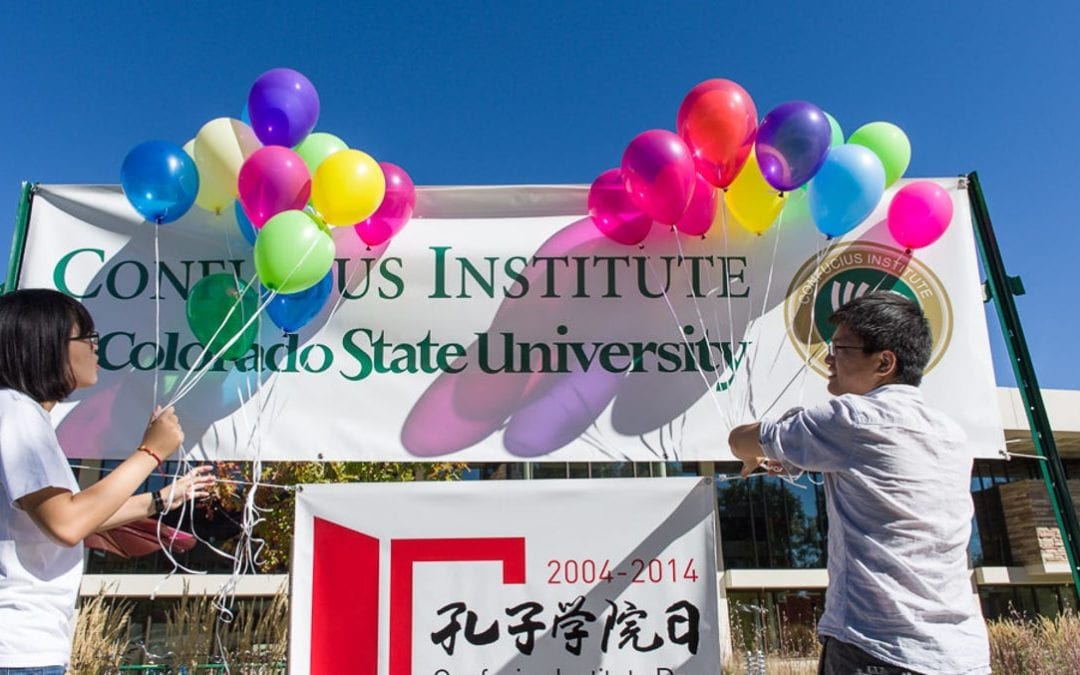Colorado State University to close its Confucius Institute on June 30
Colorado State University’s Confucius Institute will close its doors for good on June 30.
The Institute has been operating since 2012 and was “a leading provider of Mandarin language and cultural programming in Northern Colorado,” according to CSU.
CSU said its decision to close the Institute followed the passing of the 2021 National Defense Authorization Act, which prevents the Department of Defense from giving funds to “an institution of higher education that hosts a Confucius Institute” unless the funds are provided directly to students as assistance.
In a press release, CSU cited its “strong research partnership with the Department of Defense and other government funding organizations” as a factor in the decision.
Kathleen Fairfax, CSU’s vice provost for international affairs, said when the act was passed in January, it was a “no brainer” that they would close the Confucius Institute, saying the money the university received for the institute was “pennies” compared with Department of Defense funding.
She estimated CSU received around $150,000 annually from China for the institute, compared with around $100 million from the Department of Defense for various research and projects, primarily the Center for Environmental Management of Military Lands.
The money for the Confucius Institute largely went to providing language classes, bringing in between two and four teachers at a time to teach classes to the community. It also put on events connected to larger Chinese holidays, like the Lunar New Year and Spring Festival, said Kevin Nohe, associate director of the Confucius Institute.
“We would come in and maybe provide a cultural performance, we would have someone play a traditional instrument and just provide some information on ‘What is this holiday? Why is it celebrated?’ ” Nohe said.
He estimated the institute served 50 to 60 people each semester.
Nohe and Fairfax both said they hope to continue supporting different organizations as they host cultural events in the Fort Collins community moving forward; the main change is that they will no longer be sponsored by the Confucius Institute. Fairfax said she believes the language classes offered by the institute will return eventually, likely as a part of a larger community language initiative, when more funding is available.
Fairfax said while it’s sad to see the institute close — especially under the cloud of politics — it was something they had prepared for and discussed because of how Confucius Institutes became “a lighting rod” around the country in recent years.
In February, director of the CIA William Burns told officials he believes that Confucius Institutes are a way for Beijing “to advance its soft power and pro-China propaganda through cultural and educational programs at US academic institutions” and to provide the Chinese Community Party “direct access to university officials.”
Fairfax said she cannot speak on behalf of other institutes and knows the government found that some were breaking policies, but that was never the case at CSU.
“I listened to reports from the FBI and otherwise, and they’re certain that there were instances where they were a threat. I don’t think ours ever was, but I’m not gonna say that they’re wrong to think that about something else, either,” she said.
As of late May, the National Association of Scholars counted 47 Confucius Institutes left in the United States, 15 of which were set to close. The association found that since 2014, 84 Confucius Institutes had closed or announced their intent to close.
Nohe — who will remain with CSU in the international affairs department — said the biggest loss from the center closing will be the lack of access to language and cultural education the community has.
“Confucius Institute was really able to offer something that the community enjoyed,” he said.
“The students that came to our center, they were able to engage with instructors that not only taught the language at a very high level, but they were actually from China, they were here visiting. It was this really neat experience where you had the students learning about China, and the instructors from China learning about the United States; it was this really great exchange of ideas and thought.”
The institute is in the process of donating its supplies, including around 4,000 books and a number of decorations, to organizations in Fort Collins that are committed to continuing education around Chinese language and culture.
“The majority of our materials … they’ve all gone back to the community,” Nohe said. “We did not want to close and then people lose access to those items.”
Molly Bohannon covers education for the Coloradoan. Follow her on Twitter @molboha or contact her at mbohannon@coloradoan.com. Support her work and that of other Coloradoan journalists by purchasing a digital subscription today.
This content was originally published here.

